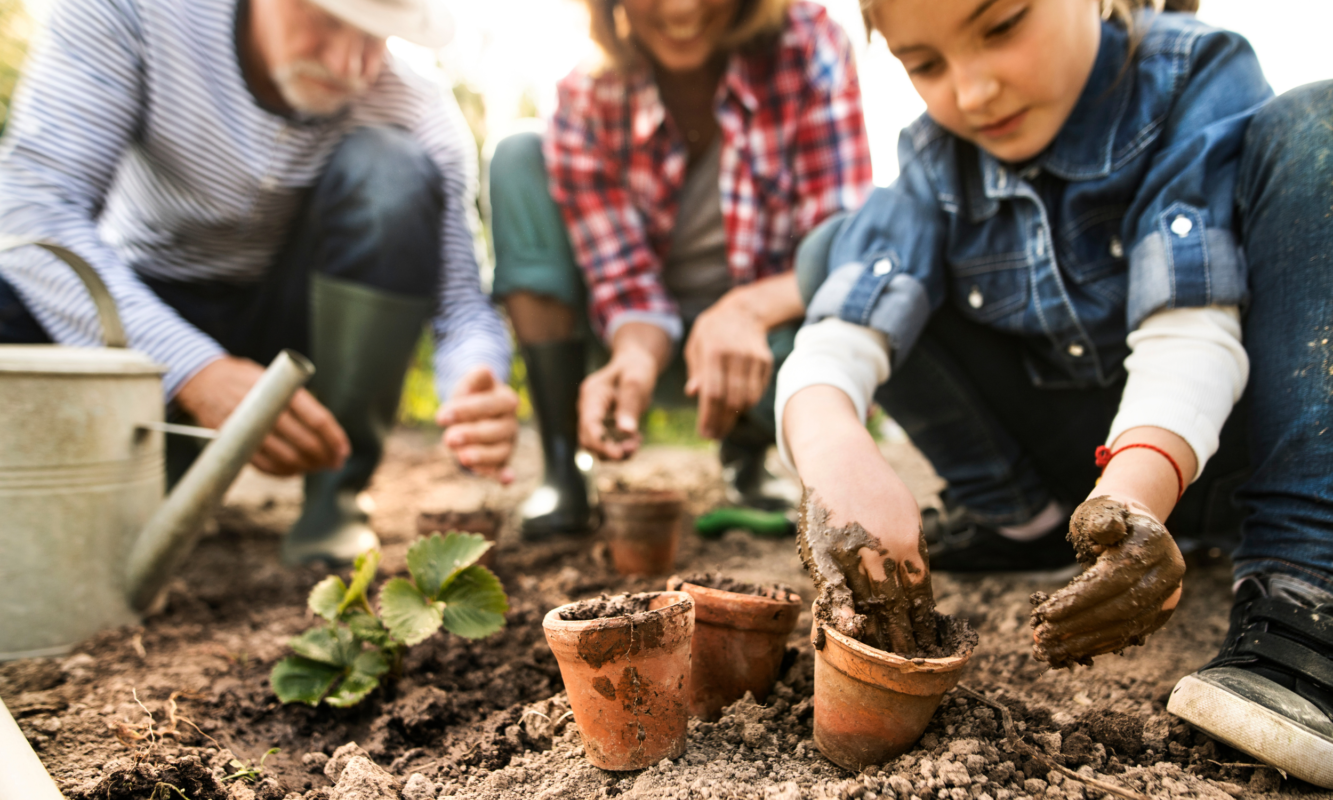Indoor vegetable gardening is more than just a way to grow fresh food; it’s a chance to engage in the Montessori practical life curriculum with your child at home!
Montessori emphasizes hands-on learning, independence, and a connection to nature as the tools to help a child grow and develop emotionally and physically. By bringing gardening into the home, we create an environment that fosters curiosity, responsibility, and a sense of accomplishment. Let’s discuss the benefits of Montessori gardening indoors!
Montessori Indoor Gardening
Montessori is rooted in the belief that children learn best through direct experiences within their environment. Indoor gardening allows us to grow vegetables and herbs year-round, introducing children to the cycles of growth and the importance of nurturing living things. This activity also helps teach patience and responsibility as we watch plants grow and tend to their needs. When a child experiences something impactful in their most comfortable environment, their home, they are more likely to want to try these foods after playing a part in cultivating them.
To get started, find a spot in your home that receives ample natural light that is accessible to children, allowing them to participate in the planting and care of the garden. Consider setting up in a spot that you’re okay with getting a little dirty (or very dirty!). If natural light is limited, you can use grow lights to set up your ideal spot anywhere. This adaptability mirrors the Montessori approach, which values flexibility and creativity.
What to Grow in Your Montessori Garden
When selecting vegetables for your indoor garden, consider options that are easy to grow and maintain. This makes it easier for children to care for the plants as they master the techniques involved. Here are some vegetables and herbs that work well in an indoor setting:
- Leafy Greens: Spinach, lettuce, and kale are perfect for indoor gardening. They grow quickly and are easy to harvest.
- Herbs: Basil, parsley, chives, and cilantro are wonderful for teaching children about scents and flavors.
- Tomatoes: Compact varieties like cherry tomatoes are excellent for small spaces and provide a tangible reward as they ripen.
- Peppers: Smaller pepper varieties, such as jalapeños, offer vibrant colors and exciting flavors.
- Radishes: Quick-growing radishes are a great way to demonstrate the rapid growth cycle of some vegetables.
You can also check out the following article for more detailed information about these veggies to help decide which ones are best for your family:
Grow an Indoor Vegetable Garden: The 12 Best Veggies
Planting and Care
As we’ve discussed, the Montessori method values hands-on experiences, so involve children in as many steps of the planting process as you can. Use high-quality potting soil and choose containers with proper drainage to avoid overwatering. Encourage children to help with watering, and consider creating a visual schedule for how often they need to be watered, ensuring the soil stays moist but not waterlogged.
Here are some additional tips for maintaining a thriving indoor garden:
- Humidity: Indoor air can be dry, especially during the winter months. Use a humidifier or place a shallow dish of water near the garden to maintain proper humidity.
- Air Circulation: Proper air movement helps prevent mold and keeps plants healthy. A small fan can be used to ensure adequate air circulation.
- Fertilization: Regular feeding is essential for indoor plants. Teach children about the importance of nutrients and use a balanced, water-soluble fertilizer every few weeks.
The most satisfying aspect of indoor gardening is the harvest. Involve children in picking ripe vegetables, reinforcing the Montessori principle of seeing a task through to completion. Use the produce to create simple healthy meals or snacks, allowing children to appreciate the fruits of their labor and understand the connection between gardening and healthy eating. By creating a nurturing indoor garden, you can foster curiosity around healthy eating as well as a lifelong appreciation for the natural world they live in!
Keep Practicing!
Are you ready to give your child the leg up they need to excel throughout school and the rest of their life? Give them the gift of a Montessori education! Give us a call today to schedule your tour of our Montessori facilities.

